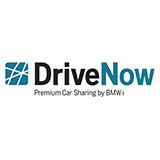| TRACK 1: Connecting Fuel Providers, Manufacturers, and Drivers |
TRACK 2: Connecting Vehicles and Community Stakeholders |
TRACK 3: Connecting Vehicles to the World |
| 8:00-9:00am |
|
| 9:00-9:15am |
Opening Remarks: Jeff Allen | Executive Director, Drive Oregon
Introduction: Phil Ditzler | Division Administrator, Federal Highway Administration
Welcome: Commissioner Steve Novick, City of Portland
Wim Wiewel | President, Portland State University
|
9:15-10:15am
Sponsored by:

|
Introduction: Charlie Allcock | Director of Business Development, PGE
Moderator: John Voelcker | Editor, Green Car Reports
Frank Breust | Vice President Governmental Affairs, California BMW Group
Mike Tinskey | Global Business Leader, Vehicle Electrification, Ford Motor Company
Robert Langford | Manager, Plug in Vehicle Sales for American Honda
David Peterson | EV Regional Manager, Nissan North America, Inc.
Alex Keros | Manager, Advanced Vehicle and Infrastructure Policy, General Motors
Dave Patterson | Chief Engineer, Mitsubishi Motors R&D; of America
|
| 10:15-10:45am |
|
| 10:45am-12:00pm |
Moderator: Stan Sittser | Lead, Transportation Electrification & Product Development, Portland General
Electric
David Packard | Senior Director, Utility Solutions, ChargePoint, Inc.
Alex Keros | Manager, Advanced Vehicle and Infrastructure Policy, General Motors
Mark Dubois-Phillips | Director Smart Utility Services, Powertech Labs Inc.
Nick Nigro | Senior Manager of Transportation Initiatives, Center for Climate and Energy Solutions (C2ES)
|
Moderator: Jean-François Tremblay | Advanced Mobility Group Leader - Global Automotive Center, Ernst & Young
Ben Holland | Urban Foresight North America
Peter van Deventer | Diplomatic Liaison/Director "Coast to Coast EV Connection", Dutch Consulate General
Harm Weken | Managing Partner, FIER Automotive
David Reeck | Electrification Strategy
General Motors China
|
Moderator: Robert Bertini, Ph.D. | Department of Civil & Environmental Engineering, Portland State University
Scott Belcher | President & CEO, Intelligent Transportation Society of America (ITS America)
Matthew Barth | Professor and Director, University of California Riverside, IEEE Intelligent Transportation Systems Society President
Mike Tinskey | Global Director, Electrification and Infrastructure Ford Motor Company
|
| 12:00-1:00pm |
Mike Carr | Principal Deputy Assistant Secretary, DOE
|
| 1:00-2:15pm |
Moderator: Charlie Allcock | Business Development Director, PGE
Karl Popham | Emerging Technologies & EV Manager, Austin Energy
Mike Rowand | Director, Technology Development, Duke Energy
Jeffrey Rosenfeld | Manager, ICF International
|
Moderator: Dan Mathis | Division Administrator, Federal Highway Administration, Washington Division
Gina Campoli | Environmental Policy Manager, Vermont Agency of Transportation
Robert Graff | Manager, Office of Energy and Climate Change Initiatives, Delaware Valley Regional Planning Commission
Richard Hanley | CTDOT EV Infrastructure Project Manager, Connecticut Department of Transportation
|
Moderator: John Day | Editor, John Day's Automotive Electric News
Toshiro Muramatsu | Director, Vehicle Information Technology Division Silicon Valley, Nissan Motor Company
Matt Jones | Senior Technical Specialist - Infotainment, Jaguar Land Rover
Pat Shelly | Solutions Architect, Mentor Graphics
|
| 2:15-2:25pm |
|
| 2:25-3:40pm |
Moderator: Sarah Olexsak | Workplace Charging Challenge Coordinator, U.S. Department of Energy
Steve Bloch | Vice President Sales, Efficient Energy Systems, AeroVironment, Inc.
Marc Geller | Plug in America
Jeannie Lam | EV Business Development Manager, Nissan North America, Inc.
Marty Sedler | Director of Global Utilities & Infrastructure, Intel
|
Moderator: John MacArthur | Sustainable Transportation Program Manager, Oregon Transportation Research and Education Consortium
Chris Hoffmann | CEO, RYNO Motors
Larry Pizzi | President, Currie Technologies, An Accell Group Company
Yesim Erez | Head of Marketing and Development, Mahindra GenZe
|
Moderator: Lee Stogner | Chair, IEEE Transportation Electrification Initiative
Peter Christensen | Manager, Technology Commercialization, Pacific Northwest National Laboratory
Ken Dragoon | Managing Consultant, Ecofys
Karen Glitman | Director of Transportation Efficiency, Vermont Energy Investment Corporation
|
| 3:40-4:10pm |
|
| 4:10-5:30pm |
|
| 5:30-7:30pm |
|
| TRACK 1: Connecting Fuel Providers, Manufacturers, and Drivers |
TRACK 2: Connecting Vehicles and Community Stakeholders |
TRACK 3: Connecting Vehicles to the World |
| 7:30-8:30am |
|
| 8:30-8:45am |
Jeff Allen | Executive Director, Drive Oregon
|
| 8:45-10:00am |
Moderator: Josh Boone | Senior Manager of Business Development and Programs, California PEV Collaborative
Phil Barnhart | Oregon State Representative, Central Lane and Linn Counties
Rick Durst | PGE
Alan Bates | Vice President of Marketing
Sales, General Inquires, Investor Relations & Host Site Opportunities, Shorepower
|
Moderator: Ashley Horvat | Chief EV Officer, Oregon Department of Transportation
Eric Heineman | Sustainability Director and Policy Advisor, Governor's Office, Illinois
Harry Dalgaard | Destination Development Specialist, Travel Oregon
Christina Ianniciello | Director, Communities & Transportation, Alternative Energy Unit, British Columbia Ministry of Energy and Mines
|
Moderator: Andrej Ivanco, Ph.D. | Clemson University International Center for Automotive
Jae Seung Lee | Manager, Electronics Research Department, Toyota Research Institute of North America
Michael O'Halloran | Senior Technologist, CH2M Hill
Zach Kahn | Director of Business Development, WAVE
|
| 10:00-10:30am |
|
| 10:30-11:45am |
Moderator: Amy Hillman | NW Client Relations Manager, Blink Network at Car Charging Group
Jim Francfort | Principal Investigator, Idaho National Laboratory
Andy Bartosh | Program Manager, EV Charging Infrastructure ABB Inc.
Daniel Schmidlkofer | Project Manager/Facility Engineer, Fred Meyer/QFC
Dave Patterson | Chief Engineer, Mobile Emissions, Mitsubishi Motors R&D; of America, Inc.
|
Moderator: Scott Sandler | Fund Manager, Oregon Angel Fund
Dexter Turner | Founder & President, OpConnect
Jim Stanley | Vice President - Product & General Manager, CarCharging Group
Brett Hauser | President, Greenlots
Maryline Daviaud Lewett | Business Development Sr. Manager, Electric Vehicle Business, Schneider Electric
|
Moderator: John Russell, Ph.D. | Partner, Alleman Hall McCoy Russell & Tuttle LLP
Robert Bertini, Ph.D. | Department of Civil & Environmental Engineering, Portland State University
Melissa Brandao | CEO & Founder, Rogue Rovers, LLC
Danny Shapiro | Sr. Director of Automotive, NVIDIA
|
| 11:45am-12:30pm |
|
| 12:30-1:45pm |
Sponsored by:
Moderator: Richard Rosen | Founder, President, & CEO, ROSEN Convergence Marketing
Ashley Horvat | Chief EV Officer, Oregon Department of Transportation
Michelle Kinman | Clean Energy Advocate, Environment California / Environment California Research & Policy Center
Brian Wynne | President, Electric Drive Transportation Association
Cassandra Powers | Institute Associate/EV Program Coordinator, Georgetown Climate Center
Rebecca Harsh Knox | Director, Retail Energy Policy, Edison Electric Institute
|
Sponsored by:
Moderator: Linda Bluestein | National Clean Cities Co-Director, Department of Energy
Mary Hazell | Sustainable Operations and Climate Change, National Park Service
Mike Penev | Senior Analyst, National Renewable Energy Lab
Rick Wallace | Senior Policy Analyst, Oregon Department of Energy & Coordinator, Columbia Willamette Clean Cities Coalition
Janea Scott | Commissioner, California Energy Commission
|
Moderator: John Gartner | Research Director, Navigant Research
Mac Brown | Director of Communications, GlobeSherpa
Peter Dempster | Business Development and Sales Management, BMW Car Sharing, DriveNow USA
Jennifer Payne | Director of Business Development, ParkNow
|
2:00-2:45pm
Sponsored by:
 |
Chandra Brown | Deputy Assistant Secretary for Manufacturing, International Trade Administration
|
| 3:00-5:00pm |
|
| 3:00-8:30pm |
|


![]()
![]()